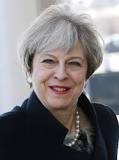…..Cautions On Hawkish Monetary Policy Regime
KPMG Nigeria, a leading professional services firm, has charged the Federal Government to adopt some proactive measures, including the cutting of production and distribution costs, in order to moderate the nation’s surging inflation rate over the past months.
The professional services firm, gave the charge in its just published Nigeria Flash Notes Issue No 5, attributing the surging inflation rate, which stood at 22.04% in March, primarily to rising energy, fuel, food, transport and other allied prices.
It reported that despite the hawkish monetary policy regime of the Central Bank of Nigeria (CBN), the pressure on food, energy, transportation and distribution costs remained unabated over the past months.
On measures it considered appropriate to reverse the ugly trend, it advocated: “A strategy to cut production costs and boost supply and control conditions stifling distribution and responsible for high and rising energy and transportation costs might be more effective in controlling consumer inflation.
“We, therefore, reiterate our position of a high and generally rising consumer price index (CPI) in 2023 at least until we begin to see significant and consistent signs of slowing domestic transportation and distribution prices and domestic and international commodity and energy prices as well as a gradual return to normalcy in economic activity following the cash crunch experienced in Q1 2023”, KMPG added.
This is even as it predicted that the planned fuel subsidy removal would further raise challenges for the government in its efforts to stimulate economic growth as well as pass the Finance Bill 2023, especially in a period of hyperinflation and when the nation’s GDP growth this year is expected to be weak amid increasing borrowings due to revenue shortfalls.
In addition, the report further noted that the depreciation of the Naira in March also accentuated the pressure on domestic prices, despite a general slowdown in international commodity and energy prices.
The firm further clarified: “The reversal of inflation in March reinforces our view that the determinants of inflation in Nigeria are largely cost-push factors which are out of control of monetary authorities and consequently, further tightening at this point has more of an impact on squeezing economic growth, constraining non-oil export growth, slowing employment creation and consumer demand and worsen poverty, rather than slowing down inflation.”
It would be recalled that the National Bureau of Statistics (NBS) last Saturday reported that Nigeria’s inflation rate rose to 22.04% in March this year, from the 21.91% recorded in February, representing a 0.13% basic points rise month-on-month.
The Bureau, in the ‘Consumer Price Index (CPI)’ report for the month, disclosed that on a year-on-year basis, the March 2023 headline inflation rate was 6.13% points higher than the 15.92% rate recorded in March 2022.




